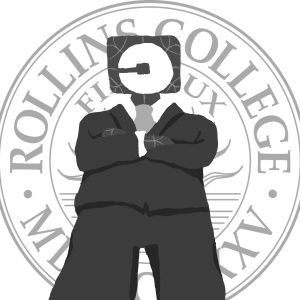Rollins and Uber recently joined forces to allow students to pay for the company’s transportation services using their TarBuc$ accounts.
By doing so, Rollins is contributing to and supporting a company whose practices include abusing their workers, skirting and ignoring the law, spending a large portion of their revenue fighting labor and transportation regulations, and misogyny.
While the decision to associate with Uber was certainly made with the student body’s best interest in mind, it goes against Rollins’ mission of teaching global citizenship and responsible leadership.

One of the American economy’s few saving graces is the fact that there is a set minimum wage. There is a limit to just how much profit an employer can squeeze from their employees’ labor power.
In a society where the capitalist mode of production prevails, minimum wage is necessary to maintain the freedom of the working class; otherwise, employees are caught in an endless cycle of working endless hours to be able to feed themselves, so they can continue working endless hours.
While minimum wage on a full time schedule is already barely enough to survive in many places in America, Uber does not even have the basic decency to pay their employees the already too small amount American lawmakers have agreed should be the minimum.
In a working paper released by MIT’s Center for Energy and Environmental Policy research, it was found that the median pretax profit drivers earn is $3.37 after taking expenses into account—74 percent of drivers earn less than the minimum wage of their state.
While students have every right to support such a horrid practice with their own cash, it should not be facilitated by an institution that proclaims to teach “social responsibility.”
Uber would have you believe that their drivers are not their employees; they are independent contractors. This allows them to provide the drivers they rely on to exist with none of the benefits employees often need and also to squash any attempts to unionize by the drivers.
However, Uber drivers are plainly not independent contractors, as independent contractors have the ability to set their own rates, while Uber drivers are subject to the whims of the app’s algorithms (in fact, Uber’s surge system sometimes keeps drivers absolutely in the dark about what they will be earning).
A large portion of Uber’s revenue goes towards fighting these arguments in court so that the TNC can continue to treat their drivers as faceless drones rather than human beings with souls that need free time and stomachs that need food. By allowing students to use their R-card on the app, the school is making it easier to pay Uber, and making it easier to pay Uber supports their campaign against the rights of their drivers.
No matter your opinion on labor regulations, most of the political spectrum can agree that companies should follow existing laws; however, Uber does not agree.
In cities where the service was deemed illegal, Uber decided to take the “it’s not illegal if you don’t get caught” approach, and instituted the use of “Greyball,” an internal app built to track police and facilitate the continuation of their illegal operations. This app detects police through various means, most notably tracing users’ credit cards to determine if they were linked to a police credit union.
Police eventually bought burner phones to avoid tracking, but Uber was very dedicated to avoiding the cops, so they had employees go to local electronics shops, figure out the cheapest devices (as the investigations often had lackluster budgets), and block those devices.
This is all just the tip of the iceberg when it comes to Uber’s dark deeds. In a longer article, we could cover their toxic corporate culture that has turned former Uber employees into the black sheep of the tech world (an industry already inundated with a sickeningly Hobbesian hyper competitive figures).
Or the company’s frequent dismissal of their service’s sexual harassment and assault problems. Or the fact that all this depravity is for nothing as the company is still hemorrhaging cash. Or the manner in which all TNC’s end up increasing congestion, as they distract from and cannibalize public transit (less a problem in central Florida, where almost all levels of government aside from the City of Orlando seem deadset of denying the public anything that is not a car).
Students have the right to buy whatever services they deem fit, but Rollins still has some responsibility not to facilitate the use of cartoonishly evil companies.







Be First to Comment